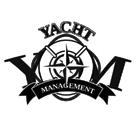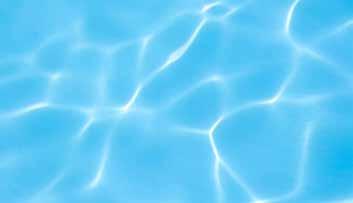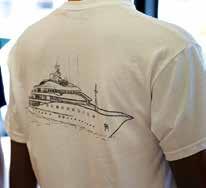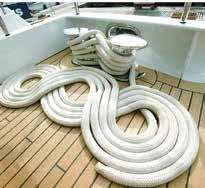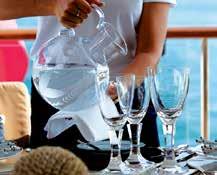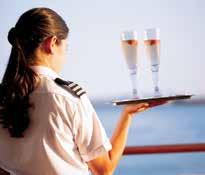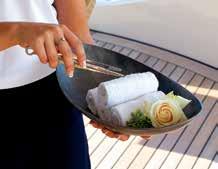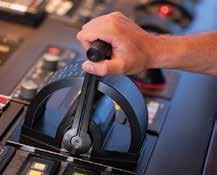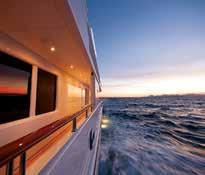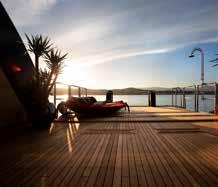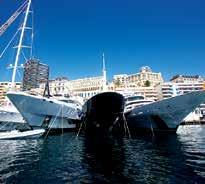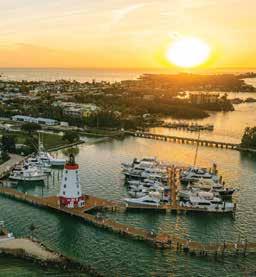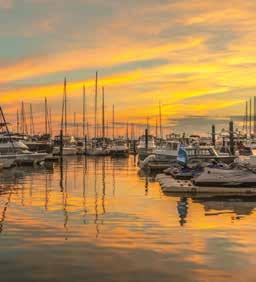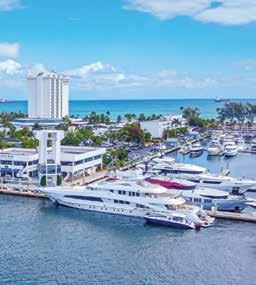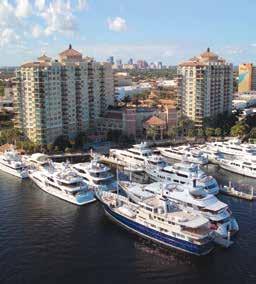






























Publishers
Jim Bronstien | JimB@TritonNews.com Kevin Quirk | KQ@TritonNews.com
Editor-in-Chief Susan Jobe | Susan@TritonNews.com
Associate Editor

Kevin Maher | Kevin@TritonNews.com
Art Director
Debbie Reznik | Production@TritonNews.com
Those of you who participated in the very successful, actionpacked, “perfect weather” Fort Lauderdale International Boat Show at the end of October were probably also here for Hurricane Nicole, which hit our coast only a few days before this issue went to print.
No one saw this coming!
November is refit season. November is when marinas fill up and all boatyards are full. November is NOT when a hurricane threatens every yacht in South Florida and forces everyone to figure out a game plan. Go south? Go north? Haul out? Stay put?
Fortunately, Nicole proved to be not much more than a huge distraction and giant inconvenience for most every yacht in the area. The sea buoy at the Palm Beach inlet did move 2 miles south of the inlet while 25-foot seas pummeled the beaches and coastline, and it did do a fair amount of damage to beaches and beachfront properties up the coast — but it could have been worse! Considering the massive destruction Hurricane Ian did to the West Coast of Florida in September, we should be grateful, despite the interruption to our November plans.
If you saw Triton Today at FLIBS or online, you may have read about our partnership plans with YATCO. As we look for ways to continuously improve Triton and provide you with more valuable content, as well as more avenues to connect with that content, we are very excited about our new alignment with YATCO. With their digital strength and broad reach in the yachting industry, they are a great match for us, and the opportunities we see are all geared to bring you a greater Triton experience.
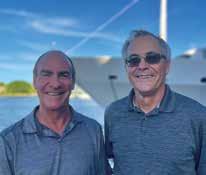
Stories, news, information, and networking are cornerstones of Triton, and we want to get better at all of those things — so that we can help you get better at what you do. It’s that simple!
As we close out 2022, we are excited about the future and the opportunity to expand our community of readers. Thank you for your support!
Happy holidays to all, and happy winter cruising season!
KEVIN QUIRK Co-owner & Co-publisher
Sales Director Edward Ibarra | Sales@TritonNews.com
Digital Advertising & Marketing Director
Carrie Bailey | Carrie@TritonNews.com
Social Media
Abby Quirk | Abby@TritonNews.com Caitlin Kader | caitlinkader10@gmail.com
Technology Editor Corey Ranslem | cranslem@dryadglobal.com
Business Controller Katherine Urdaneta | kat@usmarinagroup.com
JD Anson, Patricia Clark, Dorie Cox, Danny Davies, Capt. Jake DesVergers, Christine “Bugsy” Drake, Capt. Grant Maughan, Rob MacDonell, Gemma Harris, Erik Speyer, Wesley Walton
Contact us
TRITON Magazine +01 954-525-0029
1881 SE 17th Street, Hilton Marina Yacht Basin Fort Lauderdale, FL 33316
Follow us thetritonnews | tritonnews tritonnews | tritonnews
Vol. 2, No. 1
Triton is a free bimonthly magazine owned by Triton News Network, LLC.
Copyright ©2021 Triton News Network. All rights reserved. Reproduction in whole or in part without written permission is prohibited.
Triton welcomes content from captains and crew to be considered for publication. Please email queries to Editor-in-Chief Susan Jobe at Susan@TritonNews.com.
Some things are planned, some are not







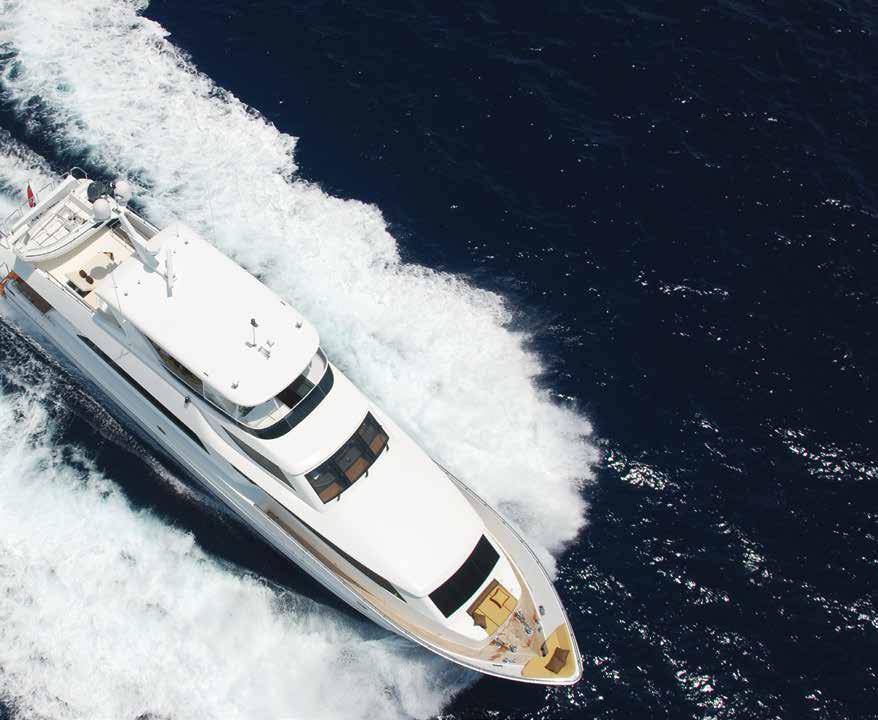
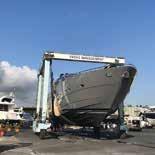

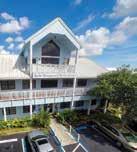







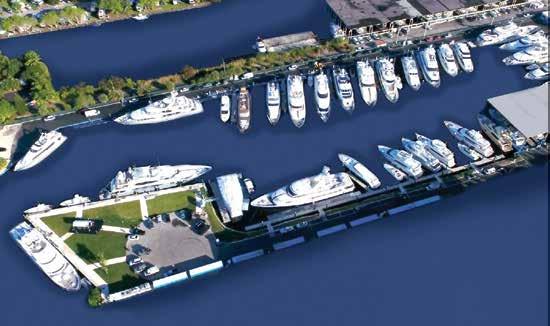











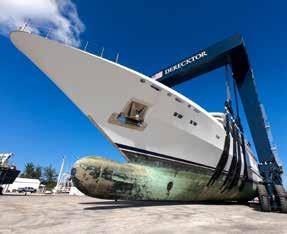


The Denison family was awarded the Golden Compass Award from U.S. Superyacht Association for their work leading the superyacht industry in the “true” direction. The legacy began with Frank and Gertrude Denison's purchase of Broward Marine in Fort Lauderdale during their honeymoon in 1948. They grew the boatyard to build minesweepers and later motoryachts, and the company was the county’s largest employer and the state’s largest defense contractor at the time.
Beacon Award for humanitarian, environmental, or social work Dan Wood, of Crow’s Nest Yachts Seattle, was recognized for 20 years of focus on underprivileged youth in the Pacific Northwest of the U.S. Using his experience and connections in the yacht industry, he organized yacht captains into what became one of the largest groups of benevolent yachting professionals, the Northwest Yacht Captains Association. The group has raised nearly $1.5 million for the Forgotten Children’s Fund and others.
This year's new award for leadership in responsible business practices was awarded to yacht owner Carl Allen, founder of Allen Exploration and owner of Walker’s Cay in the Bahamas. The award recognizes sustainability in several categories, including pioneering new ideas and actions to change the status quo within their business and yachting; the development of an innovative product or service addressing a critical social or environmental challenge; and working to transform a business model for a clean, resilient, and equitable future. Allen has worked to restore the northernmost Bahamian island of Walker’s Cay after hurricane destruction closed the island in 2005. He plans to create a superyacht destination on the island.
YPY Leadership Award for the work of an up-and-coming professional Out of the members of Young Professionals in Yachting (YPY), Chris Coleman, of Oversea Yacht Insurance, has been honored for his work as director of the company’s commercial marine division, as well as his work with global conservation company 4Ocean, and other groups, including Beneath The Waves, Ocean Grants and the Plywood Regatta for youths.
Yachtneeds initially launched as a directory, job platform, and live chat app for yacht crew seven years ago. As markets and requirements have changed, the company regrouped in February to become a marketplace for crew instead.
The new platform allows sellers to market directly to captains and crew. Products can be searched and ordered by department for yacht-specific requirements and allows orders to be delivered to yacht locations. The
Home to what Derecktor Shipyard calls the world's largest mobile boat hoist, the yard in Port of Fort Pierce, Florida, has laid claim to lifting the largest yacht possible. The 1,500-toncapacity strap lift was installed at the Derecktor Ft. Pierce yard to haul boats up to 246 feet (75m) in length for out-ofthe-water service or refits. Its recent lift of M/Y Coral Ocean, a 240-foot (73m) Lürssen weighing in at almost 1,300 tons, makes it the largest yacht hauled using strap lift technology anywhere in the world.
Derecktor Fort Pierce is 45 nautical miles north of West Palm Beach with deep-water access to the Atlantic Ocean, unlimited overhead clearance, and space on the hard for storage or land-based support services. derecktor.com
company aims to offer 500,000 products before the end of 2023.
Beginning Dec. 1, the yachtneeds.net website will stop operation and the Yachtneeds app will be removed from online stores as traffic is redirected to the new site, yachtneeds.com.
Derecktor boasts largest yacht haul ever using strapM/Y CORAL OCEAN AT DERECKTOR FT. PIERCE IS THE LARGEST YACHT EVER HAULED BY STRAP LIFT TECHNOLOGY. PHOTO COURTESY DERECKTOR




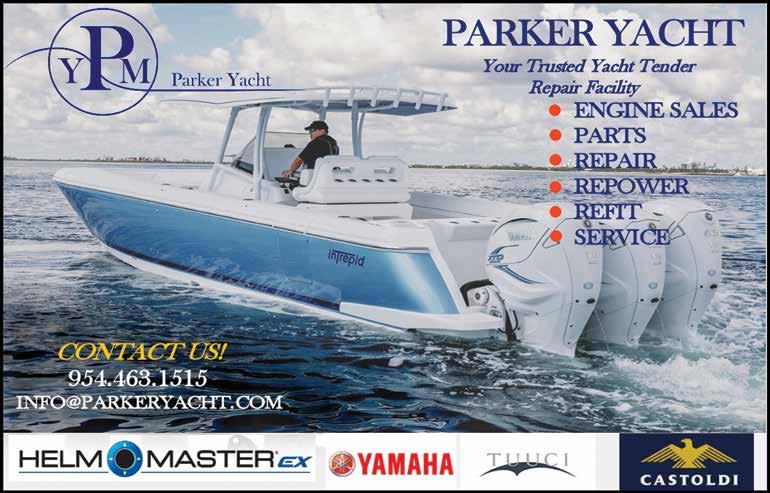
The 25th edition of the John Percival Leadership Award, “Commitment to Training, Commitment to Crew,” is now accepting nominations for outstanding yacht crew until Jan. 13, 2023.
Considered a leader himself, Capt. John Percival founded a training center in the U.K. in the 1990s and encouraged students to share their knowledge on board with others.
Yacht crew are encouraged to consider who on board shares information with others in the team — for example, a chef who brings others into the galley to share tips or an engineer who encourages junior crew to learn more about the engine room.

Please send an email with details of why a past or present crew member is the best candidate for the 2022 John Percival Leadership Award to mate@hss.ac.uk. hss.ac.uk/2022/09/21/the-john-percivalleadership-award-2022
Former yacht captain Ted McCumber was recognized as Business Person of the Year during the annual Design & Leadership Award Gala hosted by The International Superyacht Society on Oct. 27 at the Lauderdale Yacht Club in Fort Lauderdale. McCumber is managing director with Feadship and was previously build captain on the 272-foot (83m) Feadship M/Y Savannah.
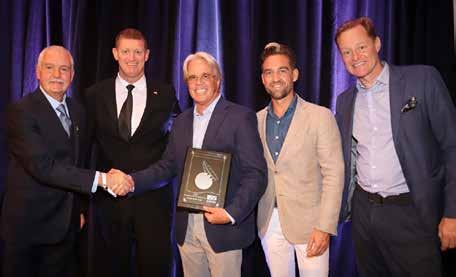
Recognized with the Member's Choice Award for design was M/Y Viva. The 308foot (94m) Feadship was launched last year featuring glass construction with a beach house-style interior.
The crew of S/Y Maiden was honored with the Distinguished Crew Award for The Maiden Factor Foundation, which works to empower girls. The yacht was the first all-female crew to sail around the
A new sailboat division is in the works at Nautical Ventures in Fort Lauderdale. Guided by his passion and expertise, CEO Roger Moore and his team will bring new products and lines to the company, including Excess Catamarans, Beneteau First Racing Sailboats, Hobie Cat, Sail Kayaks, Laser Performance Sailboats, Beneteau Oceanis, Oceanis Yachts, and Tiwal Inflatable Sailboats.
Inspiration for the project grew from Moore's 42,000 nautical mile, 13-year circumnavigation on a 63-foot motorsailer with his wife, two dogs, and a monkey. The adventure is told in The Weekly Fisherman Show podcast interview “An Improbable Journey.”
The company will run the sailboat and catamaran division separately with a qualified sales staff, separate in-water dockage, a dedicated rigging facility, a new sailing school, and an advisory board.
“Our current sales staff doesn’t know the difference between a jib sheet and a bed sheet," Moore stated in a press release. "That’s why we will be employing hands-on sailors who are passionate about sailing, with sailboat sales experience, who can relate to and service our sailing clientele.”
The planned launch date for this division will coincide with the 2023 Miami International Boat Show. nauticalventures.com
world in the 1989/90 Whitbread Round the World Race. The team won two legs and came second overall.
Also recognized:
• Frank Pollaro received the Artisan Award for his business, Pollaro, a handmade art furniture company.
• Bigelow Laboratory for Ocean Sciences was awarded for Excellence in Improving Yachting as the independent, nonprofit research institute that offers solutions and inspiration for improving ocean health.
• Starlink won the Excellence in Technology Award for increasing connectivity.
• Martin Francis of Francis Design was recognized with the Leadership Award for achievements including serving as naval architect for M/Y A. superyachtsociety.org/2022-iss-award-winners
Twelve, a carbon transformation company that uses air instead of oil to produce materials and fuel sources, has launched E-Marine, a sustainable marine fuel made from CO2, water, and renewable electricity.
The company has partnered with Virgin Voyages cruise lines to use E-Marine as a 100% drop-in diesel with 90% lower lifecycle carbon emissions, to meet goals to replace fossil fuels in marine shipping. Virgin also will be working with waste-based marine fuel producers Argent Energy and Good Fuels. This adds to Twelve's existing partnerships to supply E-Jet, a sustainable aviation fuel, to Alaska Airlines, Microsoft, and Shopify businesses. www.twelve.co

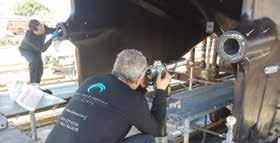
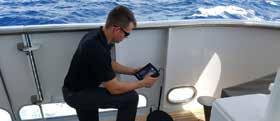

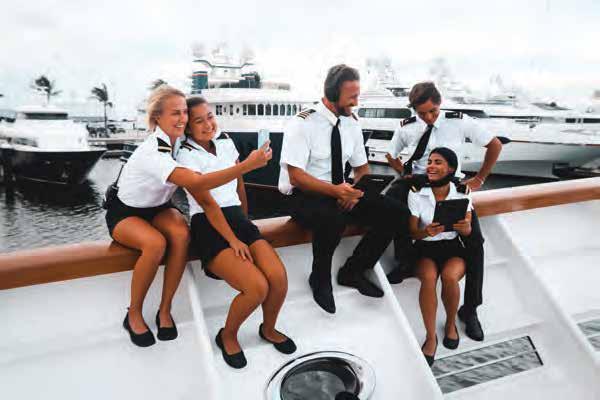



As of Jan. 1, 2023, these requirements take effect for all yachts.
 By Capt. Jake DesVergers
By Capt. Jake DesVergers
As the New Year starts, it brings a chance for the various regulatory bodies to bring us a new set of requirements to understand and implement. We will see several new rules enter into force at the start of 2023. Below is a summary of what will affect new and existing yachts.
Applies to all yachts: private, limited charter, and commercial.
The Energy Efficiency eXisting ship Index (EEXI) is a measure introduced by the International Maritime Organization (IMO) to reduce greenhouse gas emissions.
The required EEXI value is determined by several factors, including ship type, capacity, and method of propulsion. The EEXI must be calculated for the individual ship or yacht; it cannot be determined for a series of the same vessels (i.e. sister yachts).
Beginning Jan. 1, 2023, an EEXI technical file must be on board yachts of 400 GT and greater. The EEXI calculation with supporting documentation must be submitted to the yacht’s flag state and/or class society for review and approval. Those yachts already in possession of an IEE certificate must undergo a new survey.
Applies to all yachts: private, limited charter, and commercial.
Any AFS containing the chemical known as cybutryne shall not be applied or reapplied to the hull of any ship or yacht on or after Jan. 1, 2023.
Ships and yachts with cybutryne paint shall either remove it or apply a sealer that prevents leaching. This action shall be completed no later than the next scheduled renewal survey, but no later than 60 months following the last application of bottom paint.

Yachts of less than 400 GT may be exempted if the Coastal State where the yacht is located agrees.
Applies to all yachts in U.S. waters: private, limited charter, and commercial.
The U.S. Coast Guard continues to implement an aggressive program to eliminate illegal charters. Multiple voyages have been terminated. In some cases, legal action was taken against the operator. Penalties ranged from monetary fines and probation to prison time.
According to the USCG, there are seven distinct elements required to have a valid bareboat charter operation:
CREW CHOICE: The charterer selects the crew. The yacht’s owner may provide a list of qualified captains (typically three or more) for the charterer to select from or the charterer can find their own crew.
CREW PAY: The captain and crew shall be paid by the charterer.
PROVISIONS: All food, fuel, and stores are provided by the charterer.
EXPENSES: All port and pilotage fees are paid by the charterer.
INSURANCE: Coverage is obtained by the charterer, at least to the extent of covering liability not included in the owner’s insurance.
CREW TERMINATION: The charterer may discharge, for cause, the captain or any crew without approval from the yacht’s beneficial owner.
INSPECTION: The vessel is surveyed upon delivery and return to the owner.
CAPT. JAKE DESVERGERS IS CHIEF SURVEYOR FOR INTERNATIONAL YACHT BUREAU (IYB), WHICH PROVIDES FLAG STATE INSPECTION SERVICES TO PRIVATE AND COMMERCIAL YACHTS ON BEHALF OF SEVERAL FLAG STATE ADMINISTRATIONS.

U.S. Coast Guard and customs officers clarified yacht and crew entry regulations during a Q&A panel discussion at the Fort Lauderdale International Boat Show.
By Dorie CoxRules and regulations are always a topic when captains and crew connect at the Fort Lauderdale International Boat Show. That's why officers from the U.S. Coast Guard, U.S. Customs and Border Protection, and the U.S. Department of Homeland Security gather to answer questions at the Marine Industries Association of South Florida's speakers’ panel. This year, 11 officers addressed captains, crew, and industry professionals on topics that included:
Officers are on the docks inspecting for port state control and some yachts have lapsed, not meeting time requirements, according to Kimberly Glore, chief of inspections with Sector Miami of the USCG. Yachts must update notices of arrival and departure with the USCG National Vessel Movement Center (nvmc.uscg. gov), and older workbooks are no longer valid as of Oct. 13 per U.S. Code of Federal Regulations 33 Part 160.
“We try to support people, but if you're outside the window you have to go back out and then come back in,” Glore said.
Another area of concern is yachts that do not have valid statutory certificates to sell the boat, she said.
Crew visas are a U.S. Department of State issue, but CBP, as coordinator with arriving vessels, is also involved — especially when dealing with yacht crew who lack proper visas. Currently, the State Department faces delays in the adjudication of applications as the government workforce rebuilds after COVID. Even so, there are no blanket policies for recently expired visas, CBP officers said.
They recommend knowing the local contact at your point of arrival and remembering that CBP cannot “pre-inspect” a crew member. While CBP officers aim to apply discretion and work with options that may be available, each situation must be reviewed on a case-by-case basis. When crew arrive, CBP follows procedures with an inspection and can only determine if a discretionary exception is applicable at that time.

As for which visa crew should have, Patience Cohn, industry liaison with the Marine Industries Association of South Florida, said the State Department recommends that yacht crew ask for a combination of B and C-1/D visas. And crew should always check that they have been stamped in with the correct category.

CBP Officer Stephen Dearborn, with the Enforcement Programs Division of Admissibility and Passenger Programs, offered important advice for crew: If flying into a major airport, don't get in the “crew” line, which is for commercial crew. Since yacht crew work for private vessels, they are inspected as a passenger, he said, noting that a B visa is a passengerclass visa. "They might think, ‘I am a crew member, so let me get into the crew line,’ but that is for the C/Ds,” he said. “Don't get in that line!”
And if a mistake is made on CBP’s part, he added, an I-94 correction can be done.
No rule changes here, but a CBP reminder: Yachts with a cruising license can't be engaged in trade anywhere, and a yacht sale can't be completed while in zone status in a U.S. Foreign Trade Zone.
The U.S. government continues to clarify the application of sanctions on certain Russian assets — however, there should be no issue with the entry of Russian crew because restrictions are on yachts, not on people. "If you are admissible, we will admit you," CBP Officer Dearborn said.
Several attendees asked for clarification on regulated waste and international garbage when yachts are boarded by the U.S. Department of Agriculture.
The laws require proper disposal of certain meats, milk, eggs, fruits, vegetables, and garbage aboard vessels when arriving in the U.S. The discussion brought to light that some entry points do not offer proper garbage removal services and there are inconsistencies between enforcement and ports. CBP officers said they would work toward standardization.
For more information, scan the QR code.


BOTTOM LINE: SIGN IN AND OUT "We always need to know when you’re coming," said CBP Officer Dearborn when asked how yachts can better meet regulations. "That's always important. That's where it all starts."
Notice of arrivals must be registered and all vessels can use the CBP ROAM (reporting offsite arrival – mobile) app, he said.
IF FLYING INTO A MAJOR AIRPORT, DON'T GET IN THE “CREW” LINE, WHICH IS FOR COMMERCIAL CREW. YOU MIGHT THINK, “I AM A CREW MEMBER, SO LET ME GET INTO THE CREW LINE,” BUT THAT IS FOR THE C/D VISAS ONLY. DON'T GET IN THAT LINE!
Dockmasters and captains work together frequently, but not always in the most efficient way.
Dockmasters who spoke with the Triton said slight changes in a captain’s docking routine could make all the difference for both parties. Here are their suggestions.
Transparency about what your boat needs before reaching the dock is key for vital preparation, according to Jennifer Cognet, dockmaster at Pier SixtySix. “If there is anything they require beforehand, whether it is shore power or boarding requests, we can try and accommodate all those needs before they come,” Cognet said.
Glenda Ramos, marina manager at Sunrise Harbor and longtime dockmaster, agrees that transparency is essential to an enjoyable docking experience. “It can make or break a reservation,” she said. “Power requirements and correct
information about the vessel is the most important thing.”
Making sure you give the exact length of your boat is also necessary, but using the waterline length is a mistake, according to Terry Durante, dockmaster at Boca Resort Marina. “If they tell me they’re 65 feet and it’s their waterline depth, and let’s say they’re really like 80 feet, we might be putting them on a sea wall,” Durante said.
While transparency with dockmasters can help them prepare for a yacht’s arrival, there are also simple tasks that captains and crew can complete to ready their boat.
“Setting up fenders and lines can easily take over five minutes of just idling in the slip,” Durante said. Five minutes might not seem like much, but Durante says those minutes can cause collisions between neighboring boats if the captain isn’t careful.
Slip location is also a topic of concern, with captains wanting to know where they’ll be docking beforehand. Unfortunately, this isn’t something dockmasters usually know until the day of arrival. “We always guarantee your spot, but it can’t necessarily be the one we told you three weeks in advance,” Cognet said.
Also, captains should avoid scheduling stays at multiple docks with the idea of docking at the closest one at the end of the day and canceling the other reservations. “We charge them a night stay if they don’t cancel within 48 hours,” said Andy Shell, dockmaster at Bahia Mar Marina.

Despite their suggestions for improvement, all four dockmasters agreed that the working relationship between captains and dockmasters is usually great.
“I’ve never got into any arguments or anything like that during my career,” Shell said. ‹
Dockmasters say a few slight changes in a captain’s docking routine could improve the experience for all involved.



After decades of being an engineer followed by years as shoreside support, I am still frequently shocked when I open a toolbox on a multimillion-dollar boat to borrow a wrench: screwdrivers with missing tips, wrenches rusted tight, tangled piles of tools with no organization.
Mostly these are inherited from the previous crews — and the older the boat, the worse the condition. I recently visited my last boat and, upon opening the drawers, found the same worn-out tools that I was getting ready to replace years ago.
Usually, a visit with the captain to explain the predicament can suddenly free up some cash for replacing ruined tools. A courteous explanation of how a lack of proper tools in good condition can lead to ruined trips for the boss gets the attention needed.
No one needs an entire catalog’s worth of Snap-On tools on board, but key items are crucial. A basic selection of screwdrivers (don’t forget Torx) will start the box right. Adjustable and combination wrenches in both standard and metric sizes up to 1¼ inches, or 30mm, are essential. Larger sizes should be purchased after checking for needs on board.
Also essential are pliers: slip joint, angled, needle nose, and locking types in various sizes. Pipe wrenches in lightweight, rust-proof aluminum up to

The yacht might be worth millions, but often the tools on board aren’t worth a dime.
By JD Anson16 inches will help loosen those couplings that always stick at the wrong time.
A few hammers, from small brad nailers to 3-pound dead blows, will help persuade things along. A socket set, both metric and standard, in normal and deep well types, coupled with ¼-inch, ½-inch, and ¾-inch drive ratchets and extensions will save hours of hand turning.
With the basics covered, specialized items now can be added. A small tool kit with precision screwdrivers and pliers will save much time and aggravation, even when repairing large items. Hex screws are becoming more common in machinery, so a set of those wrenches will do nicely.
Electrical tools can be put in a small bag along with connectors to keep it all together. A quality multimeter will help keep things safe, and a fox and hound (also known as a tone generator and probe) can save hours trying to track down a particular wire. Add in some wire strippers and crimpers also.
One item rarely on board, but worth its weight in gold when needed, is circlip pliers. Those little retainers are extremely frustrating to remove without the proper tool, but it’s quick work when the snap-ring pliers are applied. Common on pumps, they love to fly across the workroom and disappear when treated poorly, and one can bet there is no spare on board to replace them. Just be sure to buy extra tips as they wear out easily.
A tape measure, a set of feeler gauges, and a basic Vernier caliper will ensure things line up properly. An electronic caliper is nearly foolproof. Unless aircraft tolerances are needed, the inexpensive ones will do just fine.
Once all these great tools are on board, they need to be stored in a clean tool chest big enough to allow easy access. Latching drawers are mandatory to keep things where they should be. Dedicate drawers to particular types of tools to make it easy to find them. Keep them clean. Grabbing a greasy wrench when in epaulets is a sure way to get on the bad side of the laundry staff.
While still in the holiday gifting mood, get a small box with basic tools for the deck crew and another one for interior staff. This is less charitable than it seems: It will keep them from raiding the engine departments’ tools and losing them overboard.
Spending a few grand to prepare the engine department — and deck — for nearly any emergency or repair may sound like a princely sum on a small boat, but the ability to save the guests’ vacation in, literally, the middle of nowhere will pay for itself many times over. ‹
JD ANSON HAS MORE THAN 20 YEARS OF EXPERIENCE AS A CHIEF ENGINEER ON SUPERYACHTS. HE IS CURRENTLY PROJECT MANAGER AT FINE LINE MARINE ELECTRIC (FINELINEMARINEELECTRIC.COM) IN FORT LAUDERDALE.


Finding my way into tablescaping — just like starting my career in yachting — was a happy accident. The word ‘tablescape” was not a part of my vocabulary until I started working on luxury yachts, but I couldn’t have landed my first job on a more innovative and enchanting yacht. It truly opened my eyes to the opulence and creativity that comprise a gorgeous table for high-end guests.

Nothing sets the mood for a wonderful meal more than an extraordinary tablescape.
The captain himself inspired out-of-thebox thinking, and being a charter yacht, the parties thrown were nothing short of spectacular. Table themes changed from breakfast to lunch, then jumped to a whole new level of sophistication for dinner.
No color theme was ever the same at the different meals, nor did we ever reuse the same color napkin or place mat on the same day. For the napkins, it was a flat fold at breakfast, a napkin ring at lunch, and a starched stand-up fold at dinner. The cupboards were brimming with a kaleidoscope of colored stones and sand, glass vases, and unique bits of décor.
The first time I tried my hand at setting a table for dinner was during a charter on that yacht. I was the junior stew of six stewardesses, and my chief stew called me up to the plate to test my skills. Boy, did
I fail in her eyes! The colors were off, the décor matched nothing, and what I was made to believe was a total mess never lasted long enough on the table for the guests to even see it.
Nevertheless, I had been bitten by the tablescaping bug. My passion for creating these tables, which I have come to view as art, was greater than ever. From that day forward, I have instilled in myself and the stews I have trained this standard: “There are NO RULES when it comes to tablescaping!”
I created a formula for guidance within my “No Rule” parameter, and it goes as follows: height, color, and texture. Work with different heights and different textures, and play with different colors.
Nothing sets the mood or scene for a wonderful meal more than an extraordinary tablescape. Simply put, you can set your table or you can “scape it.” A creative tablescape not only uses décor to spark conversation and give your guests something to talk about around the table, it also creates memories and can even invoke a sense of nostalgia among families or friends.
Don’t know where or how to start? My best advice is to PLAY! As you go along, look at your work from different angles, add bits, take away bits —new ideas will come to you. And here’s the best part: After you take a walk around your creation, if you don’t like what you see, you can always pull it apart and start over!
Never be afraid to go against the grain with unusual color schemes or to challenge yourself with new ideas and new themes.
I like to break stereotypes, such as the idea that to set a nice table, everything needs to be expensive. I get an absolute kick out of incorporating different items I find around the home, repurposing glass jam jars, tin cans, and even bits of rope or ribbon to create that unique element for the table.


Always “do you,” and your unique imagination will shine through! ‹

Height is very important! When placing a large vase, floral arrangement, or other décor on the table, always make sure your guests can see each other across the table. There is nothing worse than having something beautiful you have created removed from the table or moved off to the side so that your guests can chat with one another. Sit down at the table as though you were going to be eating there in order to access the view across.

» Newspaper
» Netting
» Burlap tulle
» Layered place mats
» Kraft paper (with pens so your guests can sketch)
Alternate different napkins or place mats; they don’t always have to be the same. This makes for an interesting color scheme or pattern.
» Use contrasting textures, shapes, angles, and colors to make it exciting. It also creates balance.
» Use something smooth and contrast it with something spikey or with an edge.
» Contrast light and dark colors, or try smooth and shiny napkins against a textured table base.
» Mix metals with organic items.


The theme for the Superyacht Chefs Competition at the 33rd MYBA Charter Show in 2023 has been announced. Sustainabilty is the global overarching theme as far as 2023 food trends are concerned, states competition coordinator Sarah Sebastian, so next year's competition is going to revolve around foraged fare.
The challenge for superyacht chefs will be to create a guest dinner party using as many foraged items as they can in three courses: starter, main, and dessert. A minimum of two foraged food items must be included in each dish. The foraged food items can be gathered over time and pickled, dried, frozen, or preserved in any way. They can also be gathered at the time of the competition.
Although mushrooms, berries, other fruits, and greens are among the most popular foraged foods, a variety of other wild edibles can be gathered, such as roots, nuts, seeds, and seaweed. Even fish and shellfish are forageable in the wild, depending on where you are. The possibilities are endless and chefs are encouraged to explore them!


Each chef will be allowed 35 minutes to serve their three-course dinner to the panel of Michelin-starred chef judges. Six plates of each course must be prepared — five for the judges and one for photography. A printed menu highlighting the foraged items and where they were sourced must be provided for each judge.
The challenge for chief stews in the Superyacht Table-Setting Competition is to prepare a rustic dinner party tablescape using elements of foraged and upcycled items in their décor.
The MYBA Charter Show is scheduled for April 24-27 at Marina Port Vell in Barcelona. Only chefs whose superyacht has been accepted for the show can register for the competition. When the chef receives confirmation of registration, the yacht is automatically registered for the table-setting competition as well. Chefs and stews will be required to attend a pre-competition briefing.
A competition guide is available for download by scanning this QR code.


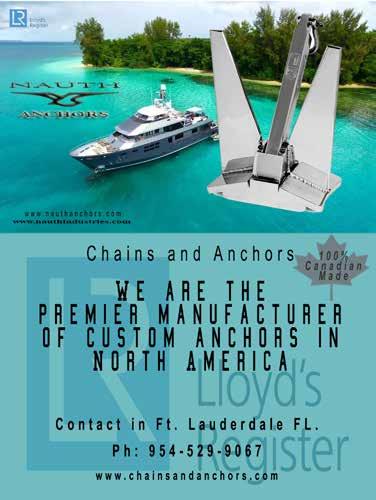
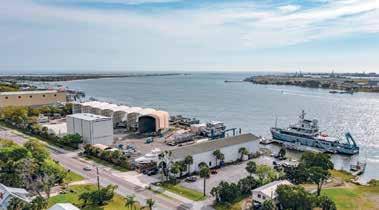

The thing about yachting is that the best experiences come down to the details. Are the welcome towels chilled? Was the correct dress steamed (not ironed!) for this evening’s dinner? Are the turndown chocolates interesting and worth that last experience of the day?
Finding or creating the perfect chocolates ranks as part of the guest experience and is expected to wow just like everything else. Serving up something bought at the market may be the best you can manage, depending on where you are in the world. But if you can plan ahead, a little bit of thought can elevate onboard chocolate from something tossed into a drawer to something worthy of late-night conversations.
At Roni Sue’s Chocolate Shoppe in New York City, Rhonda Kave carefully crafts in-house chocolates and custom truffles for restaurants, famous international brands, and unique businesses. A chocolatier for 40 years, Kave also cultivated her own special cacao spliced with indigenous fruit trees in southern Belize. The resulting product became a popular ingredient in her custom truffles, and she continues to source this unique, organic Mayan cacao
from Belizean artisans of the Moho Chocolate Company that she cofounded.
The use of many different types of chocolate in her truffles and bars is one thing that sets Kave’s chocolates apart.


“Indigenous fruit trees are often part of the terroir and microclimate where cacao grows,” she says. “Some farmers are also beginning to experiment with adding other fruits [besides the cacao fruit itself] during the fermentation process, with interesting results.”
A custom flavor created for guests can become part of a yacht’s brand. When it comes to flavor pairings, Kave recommends thinking about which flavors may be popular with your guests. Have an owner who loves scotch? Is a guest coming who loves piña coladas? She suggests that a conversation with guests can reveal themes or favorite experiences that can translate to unexpected flavors. It is these types of personalized extra touches that will surprise and delight guests.
“Established flavor profiles and tasting notes are easier to work with because the pairings are classics,” Kave says.
As part of my onboard culinary program, I have incorporated chocolate to fill in time for guests when it may be raining outside, or when the guests are not especially sporty. I love to share how I learned to truly taste chocolate
after taking Kave’s chocolate class. She has created tasting kits that teach people how to train their palates to the nuances of fruit and terroir. The curated experience begins with tastings of the cacao fruit, the unfermented beans, and the fermented beans. It is an interesting taste and conversation journey that often has guests chatting about their personal experiences with chocolate, and sometimes the geopolitical circumstances around its creation.
“Many folks are completely unaware that chocolate is a product of fermentation, or have any idea how it’s really made,” Kave says. “The tasting class is a great way to take a deep dive into chocolate and experience the wide variety of cacao flavor profiles from around the world. Relaxing and taking the time to taste the chocolate samples really allows guests to develop a deeper appreciation for fine-flavored cacao and the craft chocolate-makers who make the ‘Food of the Gods’ by hand.”
Yachts travel all over the world and it is not unusual for guests to find themselves in cacao-producing regions such as Australia, Fiji, Barbados, St Lucia,
and others. Offering guests tastings of chocolates in which the cacao is sourced from the islands they are visiting is always interesting. For yacht programs, Kave says, “the goal is to provide the guests with an experience that exposes them to the delicious flavor varieties available today to fine chocolate lovers”
When crafting guest menus, I try to consider the terroir of the week’s program and, as much as possible, incorporate the flavors of our location into the meals — including the chocolate. Offering guests a tasting experience of chocolate helps them appreciate the nuances of not only our immediate location, but also the techniques and influences of the global chocolate trade. Do you have Swiss guests on a trip heading to St Lucia? Offering a chocolate that blends St. Lucia-grown cacoa with Swiss milk adds a personalized touch and thoughtful conversation.
We all know galley temperatures can be unpredictable. Kave suggests keeping an assortment of chocolate available as bars are shelf stable and truffles or bonbons are usually not. Bars are also sturdier than truffles, which are more prone to melting.
Here are Kave’s main tips for storing chocolate: “Tightly seal the box or package in a Ziploc bag and press out the air, or wrap tightly in plastic wrap, and store in the fridge. Allow the product to come to room temperature before unwrapping to prevent condensation from the warmer air settling on the chocolate surface and ruining the finish of the bar or bonbon.
You can help keep the chocolates from melting during outdoor dining service by presenting them on a chilled tray or slipping an ice pack under the plate. At some point, you just have to deal with the reality that chocolate is gonna melt!” ‹


Personalize your boat’s onboard chocolate experiences with Kave’s tasting class. It takes about an hour and is incredibly popular with guests and crew. No one tastes chocolate the same way after! And for a limited time, Kave is offering Triton readers a special deal: Yacht chefs and stews who mention Triton when ordering tasting kits will receive a free additional kit. She also offers yacht chefs special pricing on custom (flavor, fillings, inclusions) bars made with the boat’s logo and a custom shape.
Go to roni-sue.com or scan the QR code to check it out

I will always store chocolate in the freezer. This is something I learned a long time ago, back in the British Army. I served a lot of my military time in hot Middle Eastern countries such as Kosovo, Iraq, and Afghanistan. Desert weather is hot and dry during the day and cold at night, and chocolate does not do well with fluctuations in temperature.
In the Caribbean, Bahamas, and some places around the Med, the hot and humid climates will make your chocolate bloom with fat. This is when the chocolate appears lighter than normal, with a whitewashed look. It is normally fine to eat but doesn’t look good at all.



Keeping chocolate in the freezer in a ziplock bag with the air squeezed out stops these big swings in temperature and prevents fat blooms in your high-quality chocolate.
There are a few different types of chocolate that you will need to keep on board.
Dark chocolate of high quality is essential; so is milk chocolate — again, the highest quality you can get. These usually come in large 2.5kg or 5kg bags. Drop these bags into a 2-gallon zip-close freezer bag and they
will last forever. Keep all the original packaging, as it has information about the temper points for tempering chocolate. Never mix old and new.
Always have chocolate chips on hand for cookies and muffins. I would mix different sizes and types of chips into large zip-close bags for timesaving and ease of storage.
Finally, chocolate truffle shells in dark chocolate and white. Chocolate truffles are super easy to make and are the perfect nighttime treat for turndown. I would always make a large batch at the start of the season and save them for the last night of the charter to really wow the guests.
Make a few different flavors of chocolate ganache — such as rum, whisky, coffee liqueur, black cherry, etc. — fill the shells up and chill, then dip them in more chocolate and roll them in nuts or toffee crumbles while still warm. Pop the finished truffles back into the packaging and store them in the freezer.
By the time the stews have flipped the guest cabins and dinner is finished, your handmade chocolate truffles will be completely defrosted and ready for turndown. Delicious! ‹
Depending on their size, this will fill about 20 truffle shells.
158 milliliters heavy cream
191 grams 70% Valrhona chocolate
30 grams butter, room temperature

30 grams honey
30 grams alcohol (rum, whiskey, Tia Maria — any alcohol works)
Boil the cream and honey. Pour 1/3 of this mixture over the chocolate. With a spatula, mix rapidly to obtain a smooth and glossy texture. Gradually add the remaining cream, making sure to keep the mix smooth and that it obtains a glossy emulsion. Mix until the chocolate is completely emulsified. Stir in softened butter and mix thoroughly. Leave to chill until set. Pipe into truffle shells, then chill.
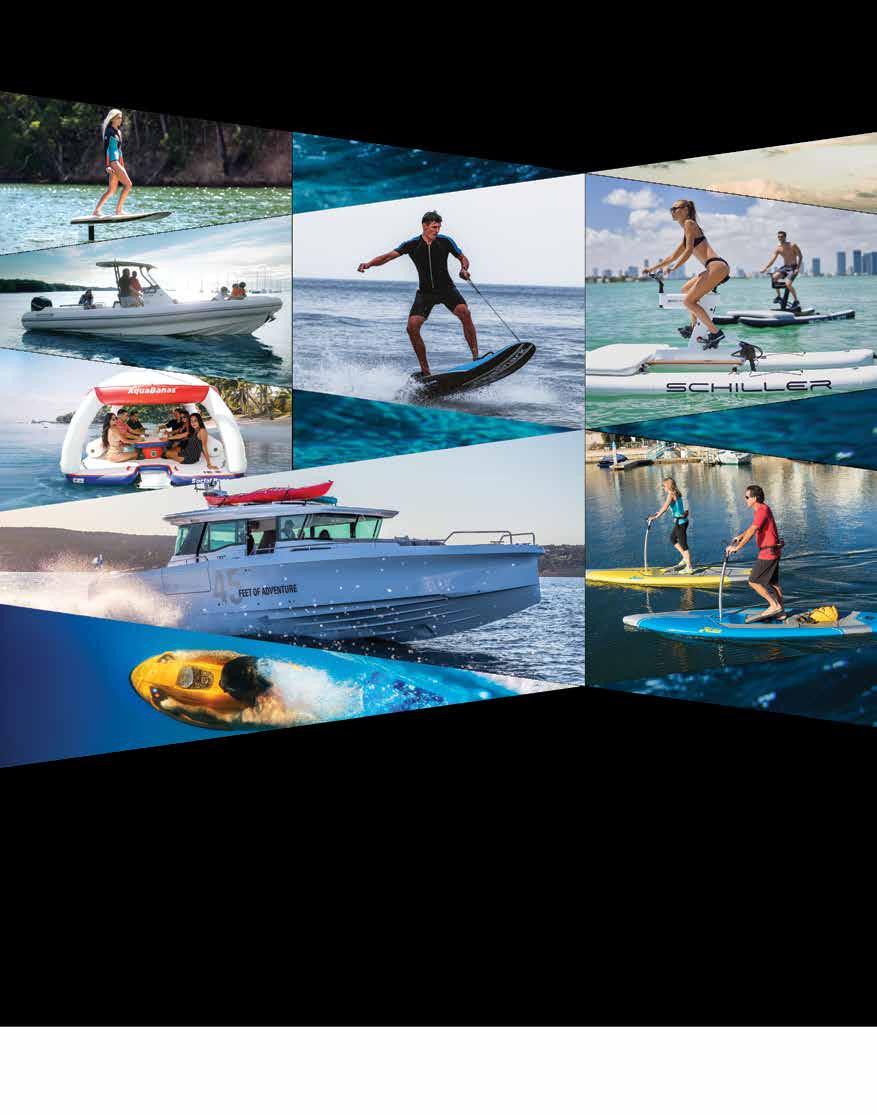
When disaster strikes and people are left with no power, no water, and no home, a nourishing hot meal can become the very essence of hope. No one understands that better than the volunteer chefs of World Central Kitchen. So when Hurricane Ian, a Category 5 storm with sustained winds of 150 mph, carved its widespread path of destruction across communities in southwest Florida, the WCK response team was ready — and so was Adrienne Gang.
Gang, a 17-year veteran yacht chef/stew who lives in Tampa, was grateful to have escaped the brunt of the storm herself and immediately pitched in to help those who


hadn’t. She soon found herself alongside 10 other chefs from around the globe, cooking for endless hours on five, butanefueled paella pans, each 6 feet in diameter. One day of volunteering became a week, then two weeks — then more. The need was immense.
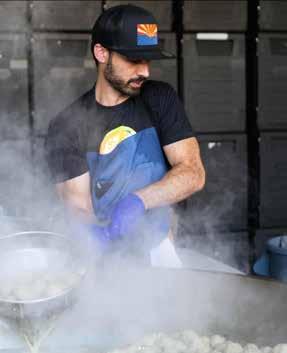

In the first day, Gang said, they put out 12,000 hot meals, all of them packaged and loaded onto helicopters to be flown every couple of hours to Sanibel Island, Pine Island and Fort Myers. Initially, with bridges demolished and roads closed, it was the only way to get them there.
"When you talk about food and water, people don't want a solution one week from now, one month from now — the solution has to be now," said Chef José Andrés, who founded the nonprofit World Central Kitchen in 2010. Since then, chef relief teams have been quickly deployed in response to deadly landslides, catastrophic flooding, earthquakes, hurricanes, and even the ravishes of war — wherever the
need for meals is urgent. Locales have included Pakistan, Venezuela, Guatemala, Panama, Puerto Rico, Haiti, Canada, the U.S, and Ukraine.
“I’ve never seen anything as impressive as what I’ve seen with this,” Gang said of WCK’s chefs at work.
The group eventually shifted operations from downtown Tampa to the Minnesota Twins spring training facility in Fort Myers, where they could be closer to the worst-hit areas. Volunteers are responsible for their own expenses and living arrangements, but in this case, the
training facility’s athlete dorms were made available.
Cooking started at 5 a.m each morning and continued all day, with no breaks, Gang said. “We just cooked until it was all done. We wanted to make sure the food got to all the distribution sites on time, and there were seven or eight distribution sites at one point, covering seven counties.”
The chefs produced an average of 15,000 hot meals a day. About 7,000 boxed meals had to be ready to go to the distribution centers by 11 a.m. for the lunch run, and another 8,000 or so ready to go by about 2:30 p.m. for the dinner run. Then there was cleanup and setup to start all over again the next morning.
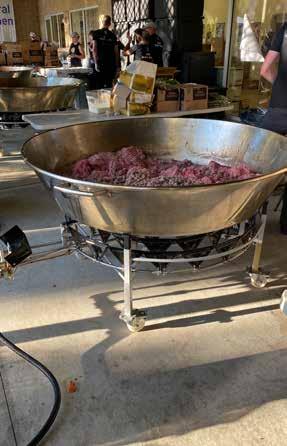

As the relief effort expanded, local food trucks and restaurants partnered with the central kitchen. ”With their help, we hit a record of 50,000 hot meals served in one day,” Gang said.

On the group’s Twitter account, Andrés posted this: “It's been 2 weeks since

Hurricane Ian hit. WCK we have served over 640,000 meals, delivering to over 200 locations! We're cooking from our kitchen here & also have help of over 55 food truck partners!”
Donations are always welcome, and donors can designate where they would like their money to be used. Gang vouches for the group’s integrity: “I was physically in the kitchen every day, seeing where those donations were going.”
SCAN THE QR CODE OR SIGN UP ONLINE AT WCK.ORG IF YOU’D LIKE TO HELP.

As a rapidly expanding organization, WCK is also in need of more trained chefs who can be readily deployed — but you don’t have to be a chef to volunteer. Yacht crew are particularly well-suited to the demands of adapting quickly to shifting
work circumstances and high-pressure environments, and non-chef volunteers are needed for such tasks as assembling sandwiches and boxing up meals.
“Many complex problems have simple solutions,” said Andrés. “Sometimes you just need to decide to do something. Sometimes you just have to show up with a sandwich or some warm rice and beans. You’d be amazed at the power of a plate of food. It can change the world, and so can you.” ‹


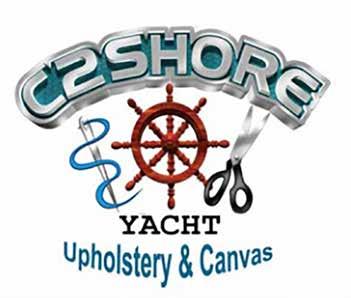

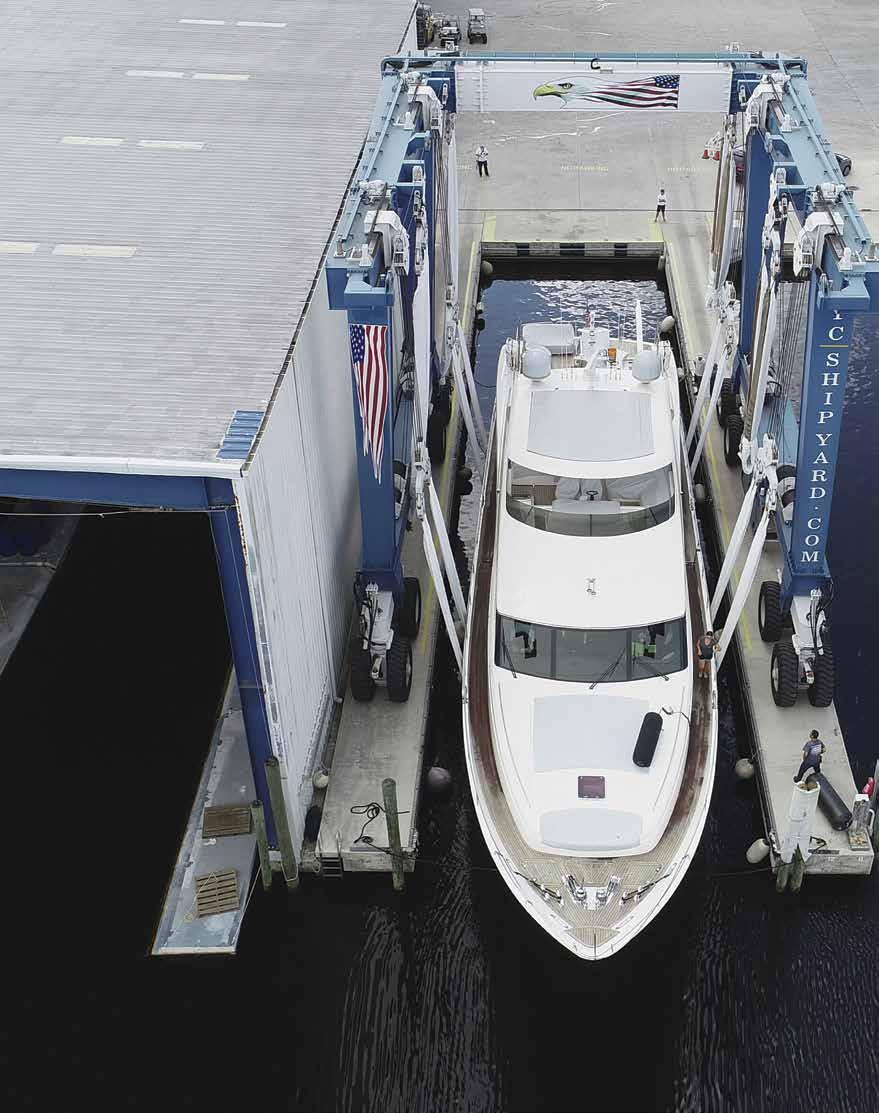




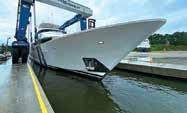



Attach this solar phone charger to your hiking pack or your kayak bungees and charge it as you go. The rugged waterproof design is made to resist rain, snow, dust, and wind. It can charge up to two devices at a time, and an iPhone or Android can be charged up to three times on a single unit charge.
Currently discounted at $39.95 each. Buy a few more to give as gifts and get an even greater discount per unit. solvoltcharger.com
Whether it’s a new gadget to take along on your next adventure or a great holiday gift that you’re looking for, these Triton picks are sure to please.
Muama’s two-way instant translator allows travelers to have two-way conversations in over 36 languages. Users speak into the translator, then play back the immediate translation in any language they choose. The small, simplistic design makes it easy to carry and use anywhere.
$89 | enence.com/translator


Apple’s AirTag is tracked through the Find My app and is slightly bigger than a quarter, fitting into any wallet or bag. The Federal Aviation Administration recently approved AirTags in suitcases too, meaning you can track your luggage while you travel. $29 | apple.com/airtag
The JBL Go 3 is a pocket-sized speaker that wirelessly connects to any Bluetooth-enabled device, allowing users to enjoy five hours of playtime on a single charge. It’s also waterproof and dustproof, making it perfect for the beach.

$30 | jbl.com/bluetooth-speakers/GO+3-.html

IceMule Coolers keep food and drinks cold for at least 24 hours. They come in 3 different sizes, holding from 6 to 18 cans plus ice. They’re designed to roll up flat for storage when not in use, so they’re easy to fit into a suitcase while traveling. You can wear them like a backpack — and they float!
$70/$80/$90
icemulecoolers.com




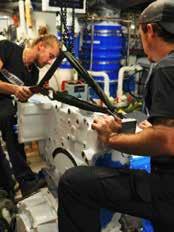

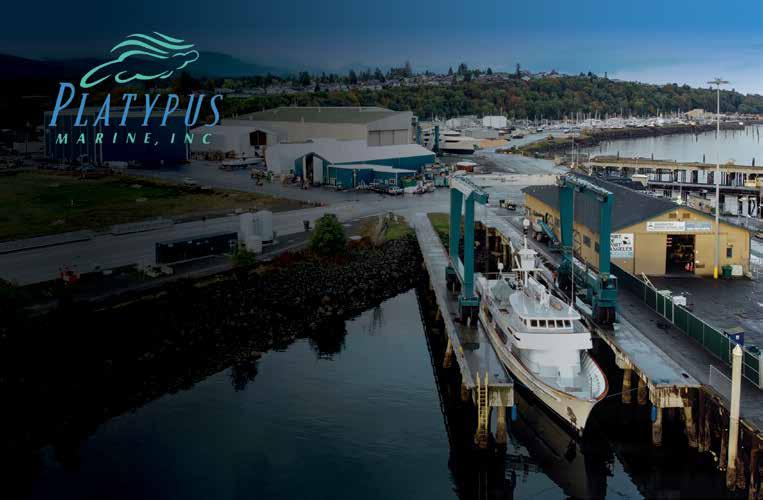

Innovative designs and sustainable solutions are cleaning up the yacht toy box and offering exciting new eco-friendly ways to play.
By Gemma HarrisA yacht is only half the fun without its toys. They can turn a simple day on the water into pure exhilaration. But when it comes to reducing the industry’s environmental footprint, the superyacht toy box has had a lot to answer for. Now, with the development of increasingly innovative designs and greener technology, a new wave of toys is on the rise — equally
exciting but without the fossil fuel-guzzling engines and unsustainable materials.
A long-standing issue with many of the current yacht toys on the market is the materials, from toxic resins to the lowquality plastic that will stay on our planet
much longer than the people using it. Today, more companies are considering the life cycle of their products.
One example is Osiris Outdoor, a U.S.-based company that manufactures its “Reprisal” kayak entirely with recycled plastics from U.S. recycling facilities. The lightweight kayak is easy to store and it comes with storage

“Superyacht owners have an insatiable appetite for these (sustainable) toys, both as users and for charter guests”
Frank Ferraro, director of marketing Nautical Ventures
compartments, rod holders, and a watertight hatch for gadgets.
When it comes to innovative uses of biodegradable materials in the toy box, FunAir takes the prize. Its Yacht Golf floating greens use Albus Golf Ecobioballs. These eco-friendly golf balls are biodegradable, with a core of edible marine food, so guests can play straight from the yacht without harming marine life.
Today, the onboard toys menu doesn't have to be fast and furious. The toys market has responded to the newer generation of yachting enthusiasts, all vying to be healthier and fitter. Guests can enjoy a workout while on vacation and can do it without the eco-guilt of fossil fuels.
One toy becoming increasingly popular is the waterbike. The New Zealand-based Manta 5 offers the hydrofoiler XE-1, which simulates the experience of cycling on the water. It offers a powerful workout but can be adjusted for all fitness levels with the use of a battery-operated pedal assist. Californian-based Schiller offers a different option for on-the-water cycling with their “catamaran-style” S1 bike, which has the ability to float when the rider is not pedaling.
Moving on from pedaling to paddling, SUPs also boast a more sustainable playtime, and not just because they don’t need fuel. Sustainable manufacturing processes for stand-up paddleboards are becoming more widespread, with increasing options for eco-friendly


boards. Los Angeles-based Infinity SUP’s Ecoboards, for example, are plant-based resin boards constructed from hemp, bamboo, and recycled wood. In addition, the company uses U.S. materials whenever possible to reduce its environmental footprint.
The foiling revolution began in San Francisco at the 2013 America's Cup, where catamarans flew out of the water, reaching eye-watering speeds. Since then, foiling has become present in many water toys, and now, the addition of a battery provides lots of fun. “Thanks to major advances in foiling technology and a world of new possibilities for surfing previously 'unsurfable' waves, we are seeing record orders for foiling and wind toys,” says Tom Stapley, the digital marketing manager of Superyacht Tender and Toys.
The Australian company Flite has made considerable advances in e-foiling technology and is now onto its second series electric hydrofoil, the Fliteboard 2.2. Offering a virtually silent, emissionsfree experience, these electric hydrofoils are a great alternative to wakeboarding and wake surfing sports, which require the tow of an engine-run tender. On top of their green credentials, e-foils are simple and low maintenance, as well as lighter and more compact for easier storage.
Carrying the concept into futuristic realms, the Q2 by Quadrofoil is a battery-powered two-seater. Channeling James Bond vibes, these next-generation watercraft are revolutionizing the industry with their electric hydrofoil technology, high performance, and a fun factor that is out of this world.
Electric has been the buzzword for a while now, and what's not to like about virtually silent, emission-free toys?
Within the non-foiling sector, the Swedish manufacturer Radinn offers a range of electric surfboards with varying features. Another U.S.-based company, Yu-Jet, offers a jet-powered electric surfboard boasting up to a 40-minute ride time.
The all-electric Orca by Taiga Motors ensures that the PWC sector isn't missing out on lowering the toy box footprint. The Canadian company produced the Orca, a sporty personal watercraft, with all the fun of a fuel-powered Jet Ski without the noise and, more importantly, without emissions. Orca’s electric drivetrain reportedly gives about 28 miles of range.
Taking a look below the surface, all-electric submersibles are also diving deep into eco-friendlier ways of ocean exploration. Dutch manufacturer U-Boat Worx uses lithium-ion battery technology lasting up to 18 hours with 10 dives daily. These green-powered submarines pave the way to a cleaner future and are used for scientific explorations and leisure.
The yachting industry must set a path toward sustainability and a circular economy to survive, as well as for the planet’s future. This is fueling ecoconscious decisions, and the investment in and progression of emerging green technology.
But the significant emphasis today on a yacht being sustainable must also extend to everything that comes with the yacht, including the tenders and toys. Stapley cautions that the future of the superyacht toy box hinges on the safe storage of lithium-ion batteries.
“Appropriately charging and discharging, safe stowage, downtime in use, etc., is absolutely imperative if the electric toy market is to really establish itself in the yachting world,” he says. "It is an exciting industry with great wealth and enthusiasm for new products, but like with anything, it's consumer confidence that drives investment." ‹
Dubbed by its maker as “the first-ever 100% recyclable boat,” Vision Marine Technologies’ new Phantom tender made a splash at the recent Fort Lauderdale International Boat Show. The Canadian company, already leading the charge in alternative propulsion systems via its high-performance, fully electric E-Motion 180E outboard motors, touts the Phantom as “the first-ever 100% recyclable boat.”
Speed and range can be sticking points when switching to sustainable, but that’s not a worry with the Candela C-8. Hailed as the “Tesla of the seas,” this electric foiling boat is for high-speed, emissionfree cruising at speeds of up to 30 knots with a range of 50 nautical miles.
RS Electric Boats uses sustainable materials wherever possible. Its Pulse 63 electric RIB, built from recycled carbon fiber and PET core, offers emission-free, silent rides at speeds of up to 23 knots and a range of up to 100 nautical miles.
When it comes to sustainability, luxury can sometimes be left behind. The U.Sbased Hodgdon Tenders is making sure this is not the case with its fully electric tenders, designed to remain true to the limousine style of its Venetian line.

Shining the sustainability spotlight on versatility, Iguana Yachts, a Normandybased company committed to a fully electric future, now offers electric amphibious tenders. Powered by an electric outboard motor, the boats have retractable tracks for moving on land, and foldable foils for propulsion on the water.






From propulsion systems to materials, Superyacht Tender & Toys has developed the fully recyclable aluminum hulls of its ROAM shadow boats and RIB tenders with sustainability in mind.
The fully electric, silent, odorless, vibrationfree Lanéva Vesper from Lanéva boats is not only modular and fully customizable, but it’s also constructed responsibly using sustainable, bio-based materials.
THE WAKE TO A MORE ECO-FRIENDLY FUTURE. HERE ARE A FEW EXAMPLES OF HOW BOATBUILDERS ARE WORKING HARD TO BRIDGE THE GAP BETWEEN PERFORMANCE AND OCEAN PRESERVATION.
Anyone who has spent significant time on the water is familiar with the concept of depth sounders: Send a wireless signal to the bottom, wait for it to be reflected, apply some simple math, and voilà! You know the depth! It’s a far cry from the days of painstakingly dropping a line with a lead weight and measuring the distance to the seafloor.
By Erik SpeyerToday, there are many types of sounding technologies to provide mariners with seafloor mapping in real time. Such products come in all shapes and sizes, and many have become very affordable — even for a weekend warrior. One product, though, is capable
of transforming a yacht tender into a powerful frontline reconnaissance tool — and that, especially for explorer yachts, can be a treasure worth its weight in gold.
WASSP (Wide Angle Seafloor Sonar Profiling) was originally designed by Furuno company ENL for the lobster and cray fishermen of New Zealand, allowing them to produce very highresolution mapping of the seabed, according to Rufus Whiteford, sales and marketing manager at WASSP. After the 2011 Christchurch earthquake, the seafloor had changed so much — up to 7 or 8 meters in some places — that the New Zealand navy had the fishermen

Mapping technology allows tenders to scout safe passageways in uncharted waters and beam hi-res seafloor images back to the bridge in real time.
map the entrance to the harbor for them. Impressed with the quality of the data, the navy reached out to ENL and a portable version of WASSP was created. It allowed the New Zealand navy to put a unit on a tender, do a survey of the seafloor, and beam it back to the mothership in real time. That same technology is now available to the public, and Whiteford says the demand is quickly growing in the superyacht market.
As exploration becomes more and more popular with superyacht owners and charter guests, vessels are looking to get off the beaten path and venture into places they’ve never been before. Some of these locations can be poorly charted, leaving captains to fend for themselves. Sending a crew member out on the tender to scout ahead and radio back the depths as the yacht carefully follows the tender is a common tactic in such situations.
Now, WASSP’s W-Series (“W” meaning wireless) allows the captain of a yacht to see — in real time — exactly what the seafloor under the tender is like while standing on the bridge of the mothership. As David Gratton, of

Telemar Yachting Americas, explains: “Unlike other top-tier processing solutions, WASSP allows you to separate the mothership from the tender and report the data back, potentially enabling safer navigation from a distance.”

WASSP contends that its Multibeam Sounder technology allows vessels to profile the seafloor 100 times faster than traditional single-beam echo sounders, and its real-time 3D mapping allows for a 120-degree, port-to-starboard view of the water column and seabed.
The clever part, Whiteford says, is that even if the Wi-Fi link is lost, the data is stored on the tender and becomes available once the link is reestablished. The Wi-Fi link is based on line-of-sight, but vessels can expect about 1.5 miles of range between the mothership and the tender.
The coverage is roughly three times the depth, so if you are in 20 feet of water, you will see a profile that is about 60 feet wide. It’s a much larger picture than simply knowing what the depth is under that tender.
What’s more, once that data is streamed back to the mothership, it’s saved — so the captain can then navigate off that data. This can be done in real time, or a harbor, for example, could be surveyed and that data saved for later use.
While WASSP has its own interface,
it also integrates with navigation software commonly used on yachts, such as Timezero. This not only allows captains to view the data in a navigational context with which they are familiar, but it also allows for the use of more robust computers.
Gratton, who understands that yard time is a precious commodity, says yachts should budget at least two to three weeks for a WASSP install once parts arrive. He cautions that “the transducer being glassed in can be a large endeavor.” On the low end, a full tender-mothership installation will run about $65,000, but each application is different, he said.
While systems like WASSP may not be the solution for every yacht program, technological innovation and growing demand have resulted in commercial-grade systems becoming more commonplace in the leisure market. They are not cheap, but these technologies could save a vessel from a catastrophic grounding, easily making up for their cost. And let’s just face it — they are fun! ‹
SPEYER IS DIRECTOR OF SALES AT BLUEWATER BOOKS & CHARTS AND PREVIOUSLY WORKED IN THE TECHNOLOGY SECTOR. HE CAN BE REACHED AT ERIK@BLUEWATERWEB.COM.
The star of the yacht toy box has sunk to new levels.
By Corey D. RanslemYacht toys have evolved rapidly in recent years as owners and charter guests have become increasingly interested in more thrilling, unique experiences. During the Mare Forum at the recent Fort Lauderdale International Boat Show, participants were asked to name the up-and-coming innovation that is most likely to bring the biggest change to the industry. The answer for most? Submersibles.
Triton Submarines, founded in 2008 in Florida by Patrick Lahey and Bruce Jones, introduced the first submersible to the large yacht industry: the Triton 1000/2, which dives to 1,000 feet and carries two people.
“Collectively, the Triton team has more than 400 years of submersible experience on over a hundred different submersibles,” said Hannah Shellenback, of Triton Submarines. Noting that Triton has designed, engineered, and manufactured some of the world’s most advanced submersibles, Shellenback points to the Triton 7500/3, which is the world’s deepest-diving three-person acrylic submersible, and the Triton 36,000/2, which is the world’s first submersible with a nonspherical acrylic hull and the only submersible in the world certified to “Full Ocean Depth.” The 36,000/2 has been to the bottom of the Mariana Trench over 20 times now, Shellenback said.
Capt. Les Annan has been a submersible pilot for six years. He’s done more than 6,000 scuba dives and is a master diving instructor, so he understands the underwater world and its requirements. He spent two weeks in training at Triton Submarines, including 20 dives with the instructors, theory studies, and both an oral and written exam.
“I have done over 220 dives as pilot, and I am also a sub tech on the Triton 3300/3 sub,” Annan said. “Safety is a huge component, and the pilot must know what every valve on the sub does and all the backup systems. Triton has spent a lot of time making the sub easy to operate and safe.”
Annan says the submersible has voice communication with the surface, along with GPS and surface tracking. Air conditioning and music are a plus. Most submersibles use an older, sound-wave technology to communicate with the surface, but according to Shellenback, there are some unique advances coming.
“Triton and Espen Øino International have recently unveiled a unique submersible called Project Hercules, capable of traveling in the range of 8 knots and diving to 200 meters,” Shellenback said. “The submersible’s expansive interior affords lounge seating or daybeds, a minibar, a small day head,
and a private pilot cabin. The goal with this model is to change the focus from what’s happening outside the sub and create an intimate and personal experience inside the sub.”
Triton has also expanded its capabilities to include other leisure industries. The company currently has a 24-passenger submersible working at a resort in Vietnam.
Most submersibles are certified through a Class Society with yearly inspections. Insurance, which stipulates some restrictions, is also required.

Annan said a submersible completely changes the onboard experience for guests. “The sub opens a whole other part of the world that very few people are ever able to see. When you do a dive, you will never forget it,” he said.

“You lose all light in the Bahamas after about 250 meters, so it is like going to the moon or Mars. The sub has a massive lighting system, so you can see everything down there.” ‹
 PHOTO CAPT. LES ANNON
PHOTO TRITON SUBMARINES
PHOTO CAPT. LES ANNON
PHOTO TRITON SUBMARINES
 PHOTO TRITON SUBMARINES
PHOTO TRITON SUBMARINES



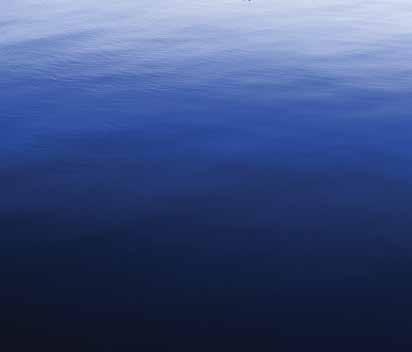
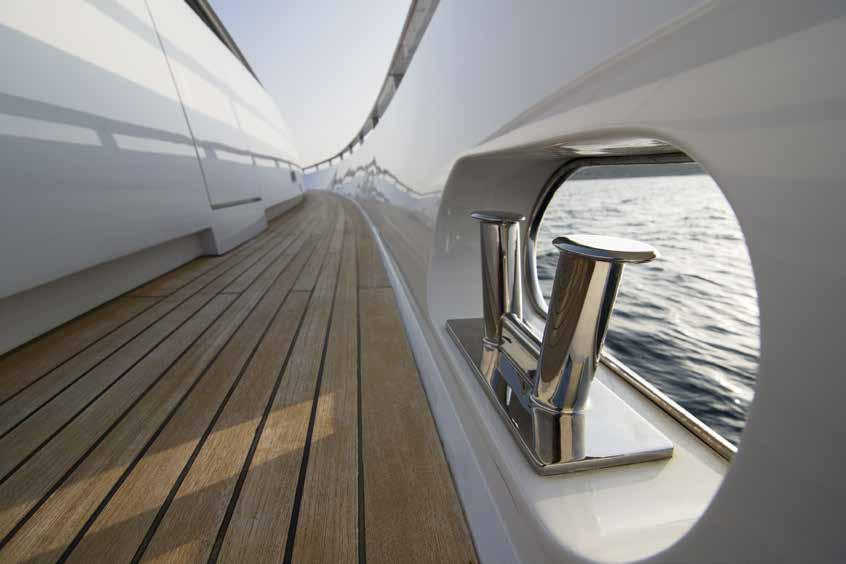


It’s charter season “Down South,” where breathtaking beauty, teeming wildlife, and challenging seas offer the adventure of a lifetime.
By Capt. Grant MaughanAntarctica remains a rampart of inhospitable ice and wind with a facade of beguiling beauty that for over a century has drawn intrepid explorers, scientists, and wayward seafarers into her frozen clutches. Recent decades have seen a rise in commercial tourists aboard cruise vessels and hastily refitted ex-research vessels, heralding a new era in cruising off the beaten path. This deviation from the well-worn “milk run” has also brought new, complicated logistics and compliance requirements to yacht captains and their crew, as well as routes through tempestuous waters to test even the finest sea-going hulls.

A visit to the Southern continent aboard a yacht should not be taken lightly. Apart from the inherent dangers of ice, thundering wind, and heavy seas, the great distances just to reach the tip of South America will challenge fuel range and maintenance — as well as the transit crew! The yacht will require passing Polar

Code compliance, and navigating officers will need at least a basic Polar Code certificate.
Most, if not all, yachts will stick to itineraries that wander around the Antarctic Peninsula, an 810-mile protuberance from the main landmass. To go further requires ice-strengthened hulls and ice-breaking bows, and includes the real risks of getting caught in the ice, possibly damaged, or even destroyed. The majority of yachts are neither designed nor constructed to withstand heavy ice conditions or allision with “growlers” or “bergy bits.”
The typical jumping-off points are Ushuaia, Argentina; Puerto Williams or Punta Arenas, Chile; or Stanley, Falkland Islands. All are a considerable distance (more than 7,000nm) from Europe or North America. Fueling points to consider on the transit are the Cape Verde islands; Trinidad; Recife, Brazil; Montevideo, Uruguay; and Mar del Plata, Argentina.
Once based at the chosen jumping-off point, the next great challenge is crossing the infamous Drake Passage, a more than 600nm stretch of some the most violent seas on the planet that skirt past the equally infamous Cape Horn. The stories of gigantic seas, screeching winds, and battered ships are more truth than fireside fiction, and any crossing should be timed with a wary eye on the weather forecast.

That does not mean, however, that it cannot at times be generally calm, and after eight crossings, I can vouch that only two were uncomfortably rough. The sea is usually on the beam and comes out of the west. Even on a calm day, the swell is large and lumpy because there is nothing to stop it, or the wind, as it circles the bottom of the earth until it gets compressed between Patagonia and the Antarctic Peninsula.
It can be tough on crew, but it’s downright horrible for guests if they choose to experience the “Drake Shake.” The best option for embarking guests is to
have them fly into King George Island in the South Shetlands from Punta Arenas or Ushuaia. However, there is a very real chance for delays due to weather when flying into or out of KGI. It’s not unusual for a flight to take off from South America in beautiful weather, then have to turn back when nearing the island because of snow, fog, or screaming wind. It’s
important to factor in these delays and to warn your guests in advance.
Meanwhile, the vessel can stand by at anchor in Slalom Lake, just off the Chilean scientific base of Presidente Eduardo Frei Montalva. This provides a (mostly) protected anchorage for pickup operations, but don’t expect a limo and a nice dock to meet your guests.

The runway and apron are dirt, and the “road” is a muddy track down to a beach, where they will hopefully not get wet feet when boarding the Zodiac. (A rubber boot selection arranged on the beach is a welcome footwear change for guests.)
Transit from the airport will be either a 1.5-mile walk or a bumpy ride in the back of a dilapidated vehicle — or if they’re lucky, a tracked Snow Tiger tractor. Again, it’s within your best interests to advise your guests before arrival on the conditions they will face in getting to Antarctica and on board the yacht.
The vessel’s insurance company may require an ice pilot on board at all times, and if the captain doesn’t have ice
experience, it is definitely recommended. A guide/naturalist will add to the guests’ experience and alleviate some of the planning chores for the crew in regards to daily itinerary and getting guests ashore. They can also assist in coordinating the timing of visits with other vessels to avoid overcrowding. The pre-eminent company handling luxury yachts in these remote locations is EYOS Expeditions. They can supply ice pilots, guides, aircraft, and advance planning services.
A 7- to 10-day cruise will allow the guests to experience the main highlights of the peninsula, including Deception Island, the Lemaire and Neumayer channels, and Port Lockroy. The
abundance of wildlife is staggering and, apart from the jaw-dropping scenery, is the main focus of shore visits. The hardier among them can try a polar plunge into the icy waters, kayaking, paddleboarding, and even scuba diving.
A great add-on trip after Antarctica is to make your way from Ushuaia through Patagonia up to Punta Arenas or Puerto Montt in Chile. Pilots will be mandatory for most large yachts moving in and out of the Strait of Magellan to Punta Arenas and the Beagle Channel to Ushuaia and Puerto Williams, depending on size and/ or tonnage. Be sure to have all necessary pilot boarding arrangements squared away per SOLAS regulations. ‹
• Antarctica, covering 5.5 million square miles, is the world’s fifth largest continent (larger than Oceania and Europe), as well as the highest, driest, windiest, and coldest continent on Earth.

• The Antarctic ice sheet is the largest on Earth and contains 70% of the world’s fresh water.
• The continent has no indigenous population.
• Multiple research stations dot Antarctica, but no sovereignty claims have international recognition.
• Under the Antarctic Treaty System, countries do not attempt to enforce claims and no one country owns Antarctica.
• Military activity is banned, however, military personnel and equipment may be used for research or delivery of supplies to bases.
The ubiquitous Zodiac-type inflatable boat is the go-to tender for ice operations. A solid bottom tender will be easily damaged or holed, and will be difficult to extract off a shoreline after picking up guests.
An outboard motor with good fuel supply and recommended safety equipment is the basic setup. It must have room, not just for the crew and guests, but also for the polar safety gear that must be carried on every trip, which includes shelter, food, clothing, and other survival equipment in case the tender cannot return to the mother ship.
It must be easily deployed and recovered onto the mother ship, and a full inventory of spares is recommended. The crew will spend time pushing and dragging the tender onto the shoreline, so weight is a consideration, as well as ruggedness.
GROWLERS: Small, dense pieces of ice smaller than a pickup truck.
BERGY BITS: Medium to large pieces broken off of an iceberg.
FAST ICE: Grounded sea ice on shore or shallows.
BRASH ICE: Accumulation of floating ice from fragments not more than 6½ feet (2m) across. Usually, the wreckage of other forms of ice.
FIRST-YEAR ICE: Sea ice of not more than one winter’s growth.
FRAZIL: Fine spicules or plates of ice suspended in water.
SHUGA: Accumulation of spongy white ice lumps a few inches across. Formed from grease or slush ice.
SASTRUGI: Sharp, irregular, parallel ridges on a snow surface created by wind erosion and deposition.

 By Rob MacDonell
By Rob MacDonell
Expect it to be cold while traveling through the Northwest Passage. Although this is obvious, make sure to purchase extra space heaters for crew and guest areas, as well as for lockers out on deck. Warn the crew to prepare for very dry and irritable skin.
There are very limited medical facilities while traveling through the Arctic. Before we left, we asked a doctor who has been to the Arctic and who specializes in remote access and medevac coordination to come aboard and go through our marine medical kit. He made valuable suggestions as to what other supplies we might need to get before the passage.
It is advised to carry paper charts for all of the areas where the vessel might plan on going. The electronic charts on Transas were mostly accurate for all the areas we traveled. We also made an effort to only go into the well-charted areas. As a backup, our ice pilot had a laptop with an Olex system installed, which provided more bottom contour information than what was on the electronic and paper charts.
The city of Cambridge Bay charges for anyone who steps ashore. Arrangements and payment should be made well in advance of arrival (mailed in by check). Notify them well in advance so they can
The window is short — and now’s the time to start planning!
have everything ready once the vessel arrives.
Clearing into Canada can be a bit of a challenge, and we coordinated this with EYOS Expeditions. All crew and guest information was sent to the Canada Border Services Agency in Yellowknife about a month before our arrival.
There are also a number of tribes in Nunavut that need to be contacted for permission to go ashore on their land. This was also taken care of through EYOS.
This is a comprehensive 170-page guide specific to the vessel on the complete operations of the vessel. A representative from EYOS came on board to see what systems were in place and could be used for the trip. They also made recommendations, such as additional spotlights to make sure the vessel would be up to SOLAS Polar Water Code.
It takes 8 to 12 weeks for the manual to be made. Once that’s done and the recommendations have been implemented, the manual must be submitted to the vessel’s class society for approval, which can take another 8 to 12 weeks. There are only a few people who are qualified to approve it, and if they
go on holiday for a month, you will have to wait. In my experience, they go on holiday in late spring!
Once the manual has been approved by class, a surveyor must be brought on board to confirm that everything in the manual has been implemented. They will then issue the vessel a Polar Waters Certificate. All of this should be done before the end of June.
We contracted with EYOS to provide the vessel with an ice pilot and polar bear guide, both of which are required for entering polar areas. Before guests or crew can go ashore, the polar bear guide goes first and scouts the area for wildlife. If any wildlife is found, no one is allowed to go

ashore. If the area is clear, then the polar bear guide, armed with a loaded rifle, must accompany the group at all times while ashore.
A Mark V Zodiac was purchased with a 70hp outboard engine for all of our excursions ashore. This is a nice, light tender to take ashore with guests and crew. To make room for it, one of our tenders needed to be left behind and trucked across the U.S. for us to pick up on the other side. It is advised to purchase at least one extra prop for the outboard. They do come with prop guards, but the frigid water causes them to shatter when even lightly touched by an underwater rock.

Personal survival kits — with warm clothing, drinking water, a pocketknife, etc. — are required for each person on board. The full list of necessary items is written up in the Polar Waters Operation Manual.
General, eight-person survival kits were provided in enough sets to cover everyone on board. Each kit included an eight-person tent, two sleeping bags, two mattresses, a shovel, etc. These kits are mandatory, as it

• Yachts tend to head to Arctic regions during the summer months, and therefore, experience the phenomena of the midnight sun. To avoid having your body clock completely thrown off track by the constant sunlight, you should set a time to close all the deadlights and curtains on board.
• The area is relatively uncharted and potentially very dangerous, so I highly recommend taking a local guide and some spare propellers for the tenders.
• Fog can roll in suddenly and things can get hazardous very quickly. I found keeping a graph to plot the trend of surface temperature against dew point extremely helpful in predicting when to expect fog.
• The Arctic is renowned for strong katabatic winds. These winds also come relatively unexpectedly. When choosing
an anchorage, stay away from ice fields as these can be pushed upon you very quickly and cause some panic.
• Foul weather gear is of the utmost importance. Gloves are lifesavers, especially when operating davit controls and driving tenders. The windchill when moving drops the temperature well below the freezing point and takes the feeling out of your hands.
• Try to avoid pushing icebergs away from the mother ship with tenders. Icebergs can crumble or flip without warning. The majority of the iceberg is underwater, so when it flips it could very well damage the tender.
• Arctic wildlife is beautiful, but you must respect the animals and give them space — especially polar bears!
might take up to five days for a rescue crew to arrive if needed.
Although we had planned on our satellite internet connection not working for the duration of the trip, it actually did work from time to time. There were also a number of cell towers between Nome and Cambridge Bay. Once the vessel was in Cambridge Bay, the satellite internet did not work and LTE was not compatible with any of the cards on board or any of the crew phones. We were able to purchase LTE hotspot WiFi routers and SIM cards in town for the crew to use in their phones, however, the programming needed to be done by the store — it was not just a straight SIM swap. Once purchased, the SIM cards worked in other communities of Nunavut as well, such as Resolute and Pond Inlet.
Since we did not have consistent internet, it was very important that we had an Iridium dish installed with a data contract. It’s a slow and expensive connection, but it was important for safety as well as completing the daily ice reports for the Canadian government.

Because we were a private vessel and had an ice pilot aboard, it was not necessary for any of the crew to have basic or advanced Polar Code certification. It was necessary, though, to understand how the ice reports work. The ice reports come out at the same time every day and are crucial for planning some sections of the trip. We needed to log on and download the reports daily, then use them to create our passage plan reports, which needed to be sent out an hour and a half before we weighed anchor so that we could get confirmation from NORDREG that we were clear to proceed. Once underway, we were required to send position reports at noon and when we arrived at our next anchorage.
A good portion of the dry and frozen food was purchased in Seattle, then a bit more in Juneau. Once the vessel arrived at Nome, we got a bit more — but just necessities. There are two supermarkets there with a bit of fruit, vegetables, and milk. Our next stop was Cambridge Bay. We were able to coordinate with an agent there a couple of weeks in advance to put an order in for some fresh fruit and
vegetables. Overall, provisioning for the trip did need to be organized ahead of time but was easier and more straight forward than expected. Everyone needed to understand that all meals were not going to be as abundant or balanced as usual, but the chefs did an amazing job with what they had and no crew went hungry at any time.
This is one of the larger concerns when planning the Northwest Passage. Once you leave Nome, you will not be able to unload garbage until Greenland. For us, this was a full five weeks. We planned for months in advance on how to reduce our garbage, and an eight-day dry run from southeast Alaska to Nome got the crew into the habit of separating their garbage.
Soda cans were banned from the boat and substituted with drink mixers like Gatorade and flavor drops. All crew and guests were given personalized Yeti cups for hot and cold drinks. Items like paper towels and napkins were substituted with cloth. Dishwasher tabs with less packaging were purchased. Anything on board that could be transferred into reusable containers was. Every cupboard was measured to maximize storage space.
Whenever wine was consumed on board, the empty bottle was placed back into the rack where it had been taken from. Similarly, if someone used up something like shampoo, the empty bottle was placed under their sink until the end of the trip.
A recycling program was implemented, and all garbage was divided into paper, plastic, glass/metal, and “other.” Paper, plastic, glass and metal were cleaned and crushed before being placed into the appropriate bins, then compacted and stored in a bilge for the remainder of the trip. The “other” garbage was placed neatly in our garbage fridge.
At the end of the trip, it took three crew members 15 minutes to unload all of the garbage, and not a drop of it leaked. It was one of the cleanest end-of-trip garbage disposals that I have ever done. In fact, due to their efficiency and ease, it was decided that a lot of the measures implemented for the Northwest Passage would be kept in place after the journey.
It is best to get fuel at Dutch Harbor, then top up again in Nome. Both places can be booked a week in advance. Nome has a very difficult dock for crew to get on and off, and is exposed to the south. If a storm comes through, you will have to depart the dock and sit at an exposed anchorage.
The next stop for fuel is Cambridge Bay, which is 1,700 nautical miles from Nome. There are some small communities along the way that might have fuel as well, but

we did not stop on this portion of the trip.
Fuel in Cambridge Bay needs to be confirmed a minimum of three months in advance. All of the community’s fuel for the year arrives at the end of August. Once a confirmation has been made that fuel is available, it should be paid for as quickly as possible via a Canadian bank account wire transfer or by check. If paying by check, note that it can take three to four weeks for the check to arrive in the mail. It is important to get the confirmation and payment done as quickly as possible and to confirm that the check has actually arrived.
There should also be a possibility to get fuel in Pond Inlet, but we continued on and went over to Greenland to get our fuel before heading down the coast. Fuel is fairly easy to get in Greenland, but it will need to be organized a month in advance and can be prepaid with a standard wire transfer. ‹
Because we were a private vessel and had an ice pilot aboard, it was not necessary for any of the crew to have basic or advanced Polar Code certification. It was necessary, though, to understand how the ice reports work.
Test your powers of observation! There are five things different in the second photo — can you find them?
Look for answers on Instagram @tritonnews

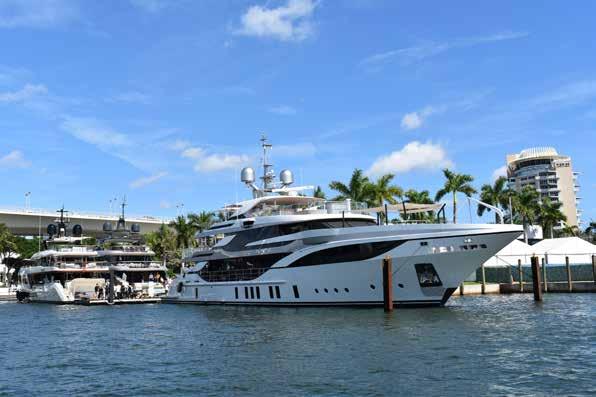
DANIA BEACH
A touch of art with dynamic figurines of the Art Deco era inspired by Anna Pavlova’s dying white swan classical ballet. Located at 481 S Federal Hwy., Dania Beach (33004). wmoda.com

PORTE DE VERSAILLES, PARIS, FRANCE
Visit more than 800 exhibitors of everything nautical at this indoor show at Parc des Expositions, Porte de Versailles. The diverse displays include swimming pools, spas, and surfing. salonnautiqueparis.com
ANTIGUA
Yacht captains and crew are at their best during walk-throughs, yacht hops, and broker lunches. The 61st edition of the show takes place at three locations on the island: Nelson's Dockyard, Antigua Yacht Club Marina, and Falmouth Harbour Marina. antiguayachtshow.com
SUNRISE
What? Ice hockey in Florida? Professional games run through April at FLA Live Arena, One Panther Parkway, Sunrise 33323. nhl.com/panthers
PALM
See what's new at this exclusive array of dining experiences: 4-course seated dinners, tastings, cocktail pairings, classes, all held at top locations around town. pbfoodwinefest.com

Daddy Yankee will be bringing his La Ultima Vuelta World Tour to the FTX Arena. Doors open at 7 p.m. and the concert starts at 8 p.m. livenation.com
Catch Zedd perform live at Club LIV for New Year’s Week, located at Fontainebleau Miami Beach, 4441 Collins Ave. Starts at 11:30 p.m. livenation.com
Ring in the New Year with live performances by Marshmello and Khalid at Club LIV, located at Fontainebleau Miami Beach, 4441 Collins Ave. livenation.com
FORT
The streets fill with art, music, food, vendors, and local businesses. Every last Saturday with a 6 p.m. start at 844 NE 4th Ave, Fort Lauderdale, FL 33304. massdistrict.com
FORT LAUDERDALE
Get artsy with more than 200 local and national artists at the 35th Annual Las Olas Art Fair. Sculptures, woodwork, jewelry, paintings and more will be displayed on Las Olas Blvd. from 10 a.m. to 5 p.m. at 740 E. Las Olas Blvd. artfestival.com/festivals/las-olasart-fair-part-i

Visit Lauderdale Food & Wine Festival
FORT LAUDERDALE
Formerly the Greater Fort Lauderdale Food & Wine Festival, this week-long culinary event highlights the hospitality industry, new and upcoming chefs and top restaurateurs. vlfoodwine.com
THE NETHERLANDS
Amsterdam lights up during the dark winter months with fascinating light displays. The city is the canvas for light art which can be enjoyed by boat or by foot.
amsterdamlightfestival.com
FORT
“The Best Show on H2O” centers on a boat show parade, brilliant from onboard a boat, or along the New River and Intracoastal Waterway. Events run for two months from casual and kidfriendly, to happy hours and black-tie galas. winterfestparade.com
Boat shows are back in Thailand for 6,000 visitors and 100 exhibitors, everything from dinghies to superyachts at the Royal Phuket Marina. thailandinternationalboatshow.com

PARK CITY, UTAH — OR WATCH ONLINE
Take a trip to the mountains of Utah and/or watch on-demand online at this celebration of independent storytelling – the largest independent film festival in the United States. festival.sundance.org

You may have seen Riverdance, but this is new, with re-recorded soundtrack and reimagined lighting, projection, stage and costume designs and the Grammy Award-winning score for Irish and international dance. browardcenter.org
FORT LAUDERDALE
Get inspired Inside creative institutions, exhibitions, studio tours, gallery openings, architectural walks, and more. At the heart is Art Fort Lauderdale (artFTL) - a showcase of local, regional, and international galleries, plus independent artists. Be sure to see exhibits housed in waterfront properties on the Intracoastal Waterway. www.artftlauderdale.com
HOLLYWOOD
Catch the five-time Grammy award winner in concert at Hard Rock Live. Concert starts at 8 p.m. livenation.com
HOMESTEAD
Now for something completely different! Head inland to the Southernmost Rodeo in the continental U.S. near MIami. One of 600 sanctioned by the Professional Rodeo Cowboys Association (PRCA) for high standards for bareback riding, team roping, saddle bronc riding, bull riding, and barrel racing. homesteadrodeo.com
Take the crew for a team-building 5K race that kicks-off the half and full Miami Marathon and party at the finish line at Bayfront Park in downtown Miami. www.themiamimarathon.com
A compilation of festivals: Comedians and Cocktail Fest, Miami Beer, Wine, & Spirits Festival, The Beat Live Music Festival, Kid Fest, Miami Fashion Fest and Bo's Dog & Pet Fest, free, at the historic 355 Alhambra Circle, Coral Gables, Florida. www.coralgablesartfestival.com

DANIA BEACH
Antique motorcycles, live music, vendors, parts swap meet, food, dealer exhibits, motorcycle field games, Roller Derby Girls, and vintage bicycle display at Frost Park at 300 NE 2nd St., Dania Beach. daniabeachvintagebikeshow.com
Jan. 29–Feb.
LAS VEGAS
Be in the know with all that's fresh in home decor, furniture, mattresses, bedding, lighting, housewares, rugs, floor coverings, home textiles, upholstery, and more at this seasonal event. www.lasvegasmarket.com
Jan. 30–Feb.
DAYTONA BEACH
Those considering a land-based transition to the business of marinas and boatyards can learn everything from operations to management with 25 sessions. Open to all industry professionals, formerly the International Marina & Boatyard Conference. marinaassociation.org



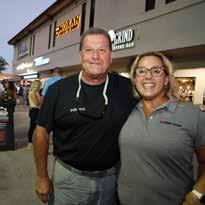


About 350 people enjoyed signature cocktails, whiskey tastings, light fare, and giveaways at Triton’s “Captains & Cocktails” happy hour on Oct. 6. The networking event, hosted by Yacht Controller at 1300 SE 17th St., included 15 booths set up by select yachting industry vendors. Watch for future networking events at TritonNews.com/ networking.

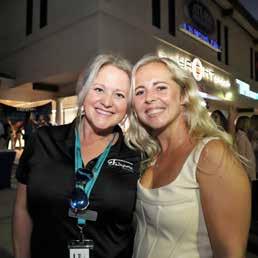
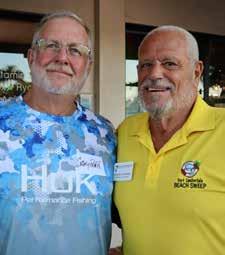
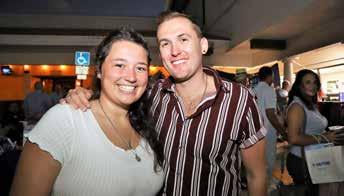

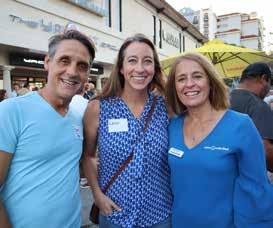


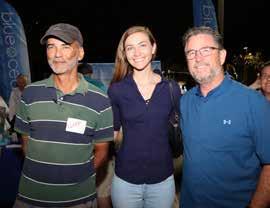



Seafarer Marine, partnering with Teakdecking Systems, offers the finest teak decking in our store. No need to order and wait, just come by and pick it up! Any questions about products or applications? Talk to our knowledgeable staff, they are always happy to help. We now feature an in house fabrication shop that can build to your specifications with a quick turn around.

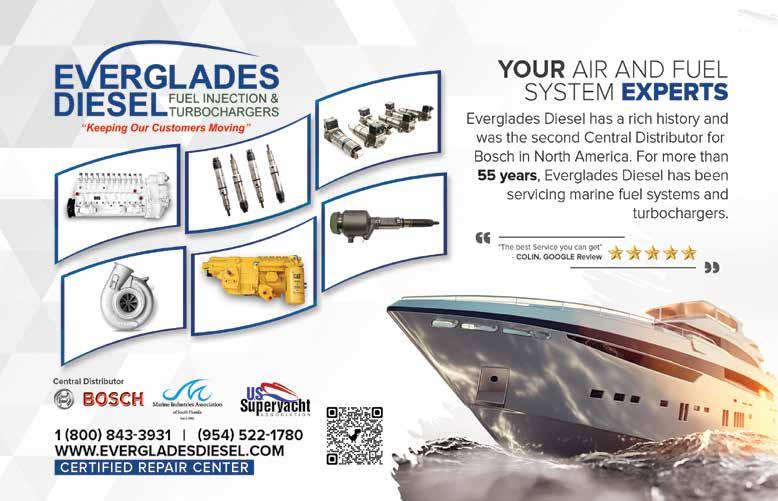

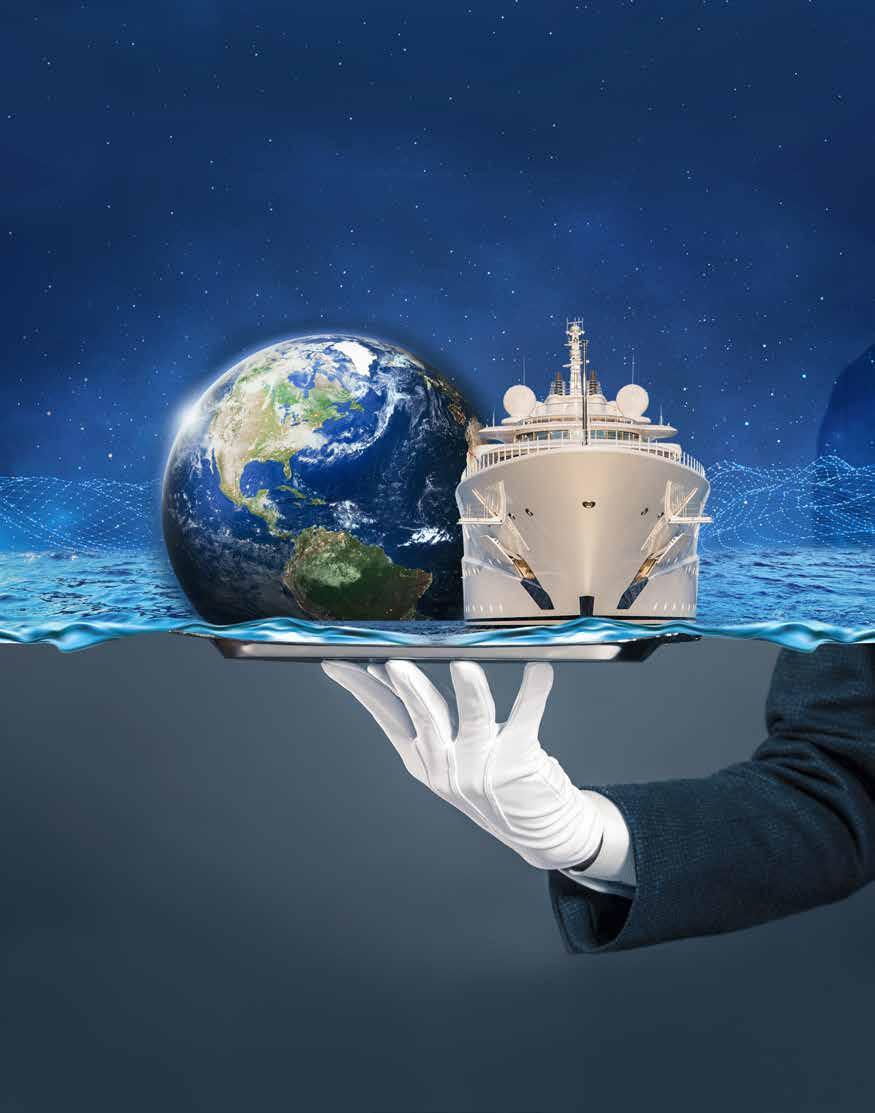
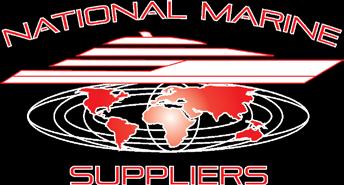




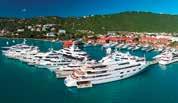
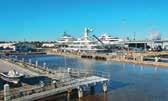


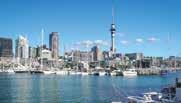


Perfect Florida weather made for great dock walking and yacht displays during the five days of the 63rd annual Fort Lauderdale International Boat Show in October. The Triton team captured photos of yacht captains and crew at work throughout the show. Show managers estimate attendance at more than 100,000 people.



















More than 1,500 people enjoyed this year's '80s Disco theme at the 13th annual Yacht Chandlers Crew Appreciation Party. The Oct. 28 event was held in the Vegas-style DAER Nightclub South Florida at the Seminole Hard Rock Hotel & Casino in Hollywood, Florida.

































Captains and crew took to the roads on motorcycles, classic cars, and sports cars for the 14th annual National Marine Suppliers Poker Run on Oct. 22. According to organizers, the event raised $73,000 in support of the Task Force Dagger Special Operations Foundation, a nonprofit that provides assistance to ill or injured U.S. Special Command military members and their families.


FORT

FORT
ANTIBES

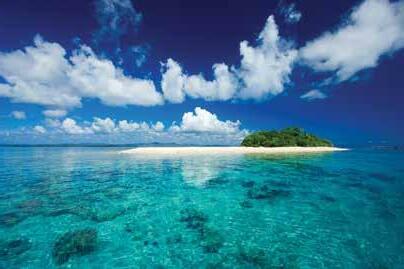

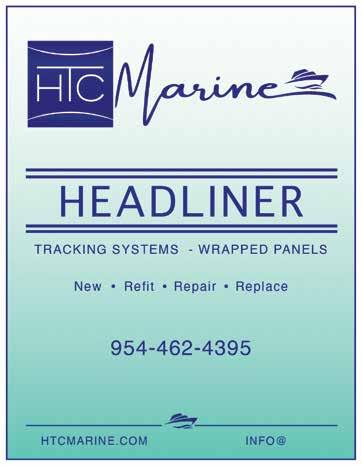
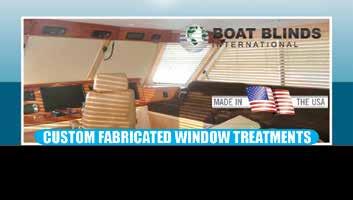


Anita Warwick

Tel: +1 954 763 9787
M/WhatsApp: +1 954 294 2078
Skype: ozanita Anita@SevenSeasHealth.com SevenSeasHealth.com


Process: Clean-Exhaust’s dosing pump injects the specifically formulated ecoBrew into the generator/engine raw water cooling system before the spray ring. The ecoBrew emulsifies the diesel particulate matter and soot as it passes through the piping and muffler, much like the agitation action in a washing machine. No back pressure is created in the process.

Result: The exhaust gas is expelled with little or no particulate, facilitating cleaner air, cleaner harbors, cleaner oceans, cleaner hulls and boot stripes with no floating sheen or sludge.
One Captain, One Engineer, One Great Idea!... clean-exhaust
Captain Ted Sputh
Tel: +1 317-445-3873
Email: info@clean-exhaust.com
Rodger Stone
Tel: +1 518-378-6546
Yacht-Mate Products




Tel: +1 954-527-0112
Email: sales@yachtmate.com
Email: res2itrmarine@gmail.com www.clean-exhaust.com U.S. Pat. #US 20130283768 | Int. Pat. pending #61/638,669
